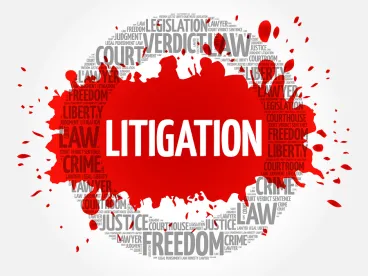It may seem odd to have an appellate lawyer participate during a trial. But a new decision from the Michigan Court of Appeals shows that a second set of eyes, with a view toward appeal, can benefit both clients and lawyers at the trial level.
In Estate of Kord Kostich v Monroe Motor Sports, Inc, unpublished per curiam opinion of the Court of Appeals, issued October 14, 2021 (Docket No 353446), the trial team's failure to preserve an issue for appeal cost the plaintiff a new trial. Kord Kostich was killed when his vehicle hydroplaned during rainy weather and veered into oncoming traffic. Kostich's wife, as personal representative of his estate, brought a negligence claim against Monroe Motor Sports, claiming that it failed to recognize that the tread depth of one of the tires on Kostich's vehicle was inadequate for wet roads. When the jury returned a verdict for Monroe Motor Sports, Plaintiff's attorney asked for the jury to be polled. The parties had apparently agreed that only five out of the eight jurors would have to agree to support a verdict. But, when the trial court polled each juror individually, only four of the eight jurors stated that the verdict announced was their own. The trial court nevertheless confirmed the verdict. Neither party objected.
On appeal, the plaintiff argued that the estate was entitled to a new trial because an insufficient number of jurors agreed with the verdict. Even though the plaintiff was correct, the Court of Appeals held that the plaintiff was not entitled to a new trial because its attorney did not object when the trial court confirmed the verdict. Under Michigan's "raise or waive rule," the Court of Appeals explained that by not objecting, the plaintiff waived its ability to appeal the issue. "[T]o the extent that there was any uncertainty about the jury's verdict or the effect of the polling on the validity of the jury's verdict," the Court of Appeals said, "plaintiff should have raised the issue at the time, where it could have been promptly addressed and any needed clarification obtained, and appropriate remedial action could have been taken if necessary." So, what should have been an easy reversal in the plaintiff's favor became a loss on appeal due to an oversight at the trial level. To rub salt in the wound, on remand the plaintiff must pay significant case-evaluation sanctions to Monroe Motor Sports.
Trial lawyers are, as they should be, focused on the finest factual minutia of their case and the art of persuading jurors based on how those facts are presented through witnesses and summarized during closing arguments. Sometimes, however, that clouds even the best trial lawyers' vision of the technical legal details that can lead to reversible error on appeal. Having an appellate lawyer as part of the trial team can help preserve a win at trial or, unlike Monroe Motor Sports, make sure that issues are preserved so that a trial loss that shouldn't have been can be corrected in the appellate court.






 />i
/>i

